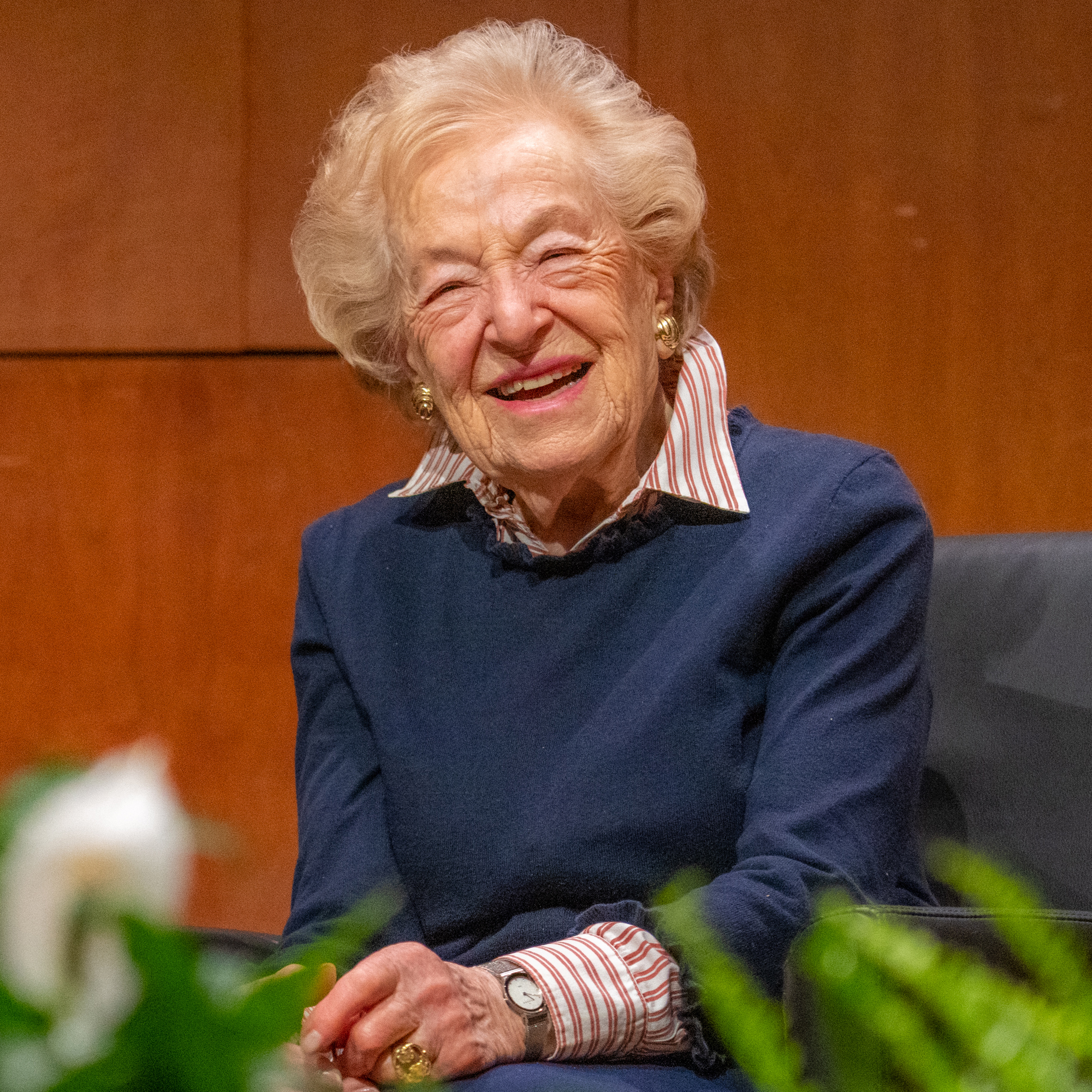MAY 9, 2023 – Late this month, Brown University will confer honorary doctorate degrees on six Americans of distinction. Among them will be the inimitable Ruth Oppenheim.
I first met Ruth during college. Her son, Jeff, a close friend of mine, had invited me to stay with the family in Barrington, Rhode Island over Thanksgiving weekend our sophomore year. His father was a hard-working, successful businessman who took no prisoners. I respected his directness and honesty and enjoyed his sense of humor. As for Ruth, something about her reminded me immediately of my paternal grandmother, albeit a generation younger. Perhaps it was Ruth’s German accent, which was distantly reminiscent of my grandmother’s Swedish lilt. Or maybe it was Ruth’s perfectly constructed English, thanks to her years as office manager of the English Department at Brown University (“What better place for me to learn English?” Ruth says, half jokingly)—just as my grandmother, who also exhibited an uncommon command of English, had taken a job with a Yale English professor, who insisted that all immigrant “household help” learn the King’s English. More likely, Ruth’s innate refinement reminded me of my grandmother’s—in each case a natural disposition bolstered by the immigrant desire to adapt and succeed among strangers in a new, fast-paced land. But most likely, what I saw that Ruth and my grandmother shared was intelligence and character; kindness, generosity and sincerity.
I knew it was a lingual stretch, but I always took “Oppenheim” to mean “open home,” a policy that Ruth and Walter readily applied to me on the multiple occasions I visited. If I was an outsider, an odd-ball Midwesterner, I was a friend of their son, and that was good enough for them. I always enjoyed their lively spirit, generous kindness, and scintillating conversations. Emblematic of Ruth’s caring manner was the lunch she once packed for my train passage from Providence to New York. I was pleasantly surprised when underway, I opened the lunch bag and found chips, cold cuts, cookies, an apple and two, delicious meatloaf sandwiches. Ruth had gone all out. It was a significant gesture, part of the larger lesson that Ruth’s life projects: in aggregate, generous acts of kindness and acceptance make the world a better place.
Jeff’s father died way too soon more than 20 years ago. As Ruth approaches 96 years, she’s as vital as ever, and we’ve remained in touch to this day.
During college, Jeff shared snippets of his parents’ remarkable backgrounds: growing up in Germany in the 1930s, experiencing the rise of Nazism and in the nick of time, fleeing the closing jaws of atrocity and destruction. More recently, however, I’ve been granted a fuller view of Ruth’s story.
Several years ago she published her memoir, Beyond Survival (See 10/8/20 post – http://writemakesmight.net/beyond-survival/) Since then, Ruth has been a frequent speaker in a host of venues, imparting her story . . . and admonition. It is for this distinguished service to our democracy that she will be awarded the honorary doctorate from one of America’s pre-eminent universities. This honor means everything to a woman who has always assigned the highest premium to education—a value she inherited from her father, who, in the face of Nazi destruction of Jewish life, impressed on Ruth and her siblings that “an education was something they could never take away from you.”
Yesterday, I watched on YouTube a presentation that Ruth had given recently at Brown. She spoke of her family’s terror on Kristallnacht—November 9/10, 1938—as the Nazis rampaged against the Jews of her town and throughout Germany and Austria and how her father, honored with the Iron Cross for his bravery in World War I, stood up to the Nazi thugs. Despite a savage beating, he rescued the Torah from his family’s synagogue. (The rescued Torah was brought to America and donated to the Hebrew Tabernacle Congregation in New York.) She described the pain and loneliness of being ostracized at school, then full expulsion from the life of the Westphalian community where her ancestors had lived productively since 1784. Ruth’s long, full life “beyond survival” redeems the cruel murders of her extended family members—among them, her young cousin Helmut, whom Ruth and her sisters adored as if a brother; her vibrant uncle, who leapt over a table at the American consulate in Stuttgart to prove to the (anti-Semitic) American consulate official in charge of issuing visas, that he, Ruth’s uncle, “would not be a burden to America” because of a stiff knee injured in a motorcycle accident. (His visa application was denied.)
With a steady cadence, Ruth warns against hate and discrimination. She knows whereof she speaks. But however deep the evil of Nazi Germany, her life is a mighty triumph of decency over cruelty, hope over despair and resilience over devastation. If we must listen carefully to her story and heed its warning, we must also draw from it supreme hope and inspiration.
Subscribe to this blog and receive notifications of new posts by email.
© 2023 by Eric Nilsson
